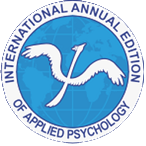Training of Emotional Creativity and Development of Adaptive Personal Qualities
Abstract
The article describes the results of educational experiment with the use of psychological training of emotional creativity. The objectives of the training were the development of rapid and effective management of emotional states, flexibility and variability in the expression of feelings, finding new meanings of difficult life situations and transformation of stereotypical, destructive emotions into more constructive ones. The educational experiment was based on the notion of emotional creativity, which was introduced by J.R. Averill, as well as the author's understanding of this phenomenon, as the ability of variable and spontaneous generation of new meanings arising from life experiences and new ways of emotional response. To assess the effectiveness of psychological training and its impact on the adaptive personal properties we used J.R. Averill's emotional creativity questionnaire, R.Lazarus and S.Folkman's method called “Coping behavior strategies”, and Freiburg Personality Inventory (FPI), as well as the emotional creativity test, which was developed by the author of the present article. The proposed experimental hypothesis regarding the influence of emotional creativity on the optimization of personal qualities', that provide for social and psychological adaptation, was confirmed.
- Berezina T. N. (2012). Emotional creativity of a personality: definition and structure // Psychology and psycho-techniques. № 2. Pp. 43-50.
- Averill J. R. (1999). Individual differences in emotional creativity: structure and correlates // Journal of Personality. Vol. 67. N 2. Pp. 331-371.
- Averill J. R. (2005). Emotions as mediators and as products of creative activity // Creativity across domains: Face of muse. Eds. J. Kaufman & J. Baer. Mahwah, N.Y.: Erlbaum. Pp. 225-243.
- Frolova S. V., Sergeeva V. S., Stulina L. K. (2015). Emotional creativity as a factor of personal resilience // Organizational psychology: people and risks. Collection of material of the fifth Russian-American scientific and practical conference. Saratov: «Nauka». Pp. 419-425.
- Frolova S. V, Novoselova K. I. (2015). Emotional creativity as a factor of individual and family psychological wellbeing // International Annual Edition of Applied Psychology: Theory, Research, and Practice. Vol. 2. Pp. 30-43.
- Ivcevic Z., Brackett M. A., Mayer J. D. (2007). Emotional intelligence and emotional creativity // Journal of Personality. N 2. Pp. 199-235.
- Zareie H. A. (2014) Structural modeling of the relationship between emotional creativity, self-efficacy and academic motivation among students. Bulletin of Environment, Pharmacology and Life Sciences. Vol. 3. Pp. 27-30.
- Valueva E. А. (2009) Emotional creativity diagnostics: adaptation of J. R. Averill's questionnaire // Social and emotional intelligence: from processes to measurements / Edited by D. V. Liusina, D. V. Ushakova. Moscow: Publishing house of the Russian Academy of Sciences. Pp. 216-227.
- Wasserman L. I., Iovlev B. V., Isaeva E. R., Trifonova E. A., Shchelkova O. Yu., Novozhilova M. Yu., Vuks A. Ya. (2009). Psychological diagnostics technique for coping strategies in stressful and problematic personal situations: textbook for doctors and medical councellors. Saint Petersburg: Publishing house of V. M. Bekhterev's Institute. 40 p.
- Vansovskaya L. I., Gaida V. K., Gerbachevsky V. K., et.al. (1997). Practice in experimental and applied psychology: textbook edited by A. A. Krylov. Saint Petersburg: Publishing house of Saint Petersburg University. 312 p.
- Sobchik L. N. (2002). Drawn apperceptive test. Saint Petersburg: Rech. 32 p.

